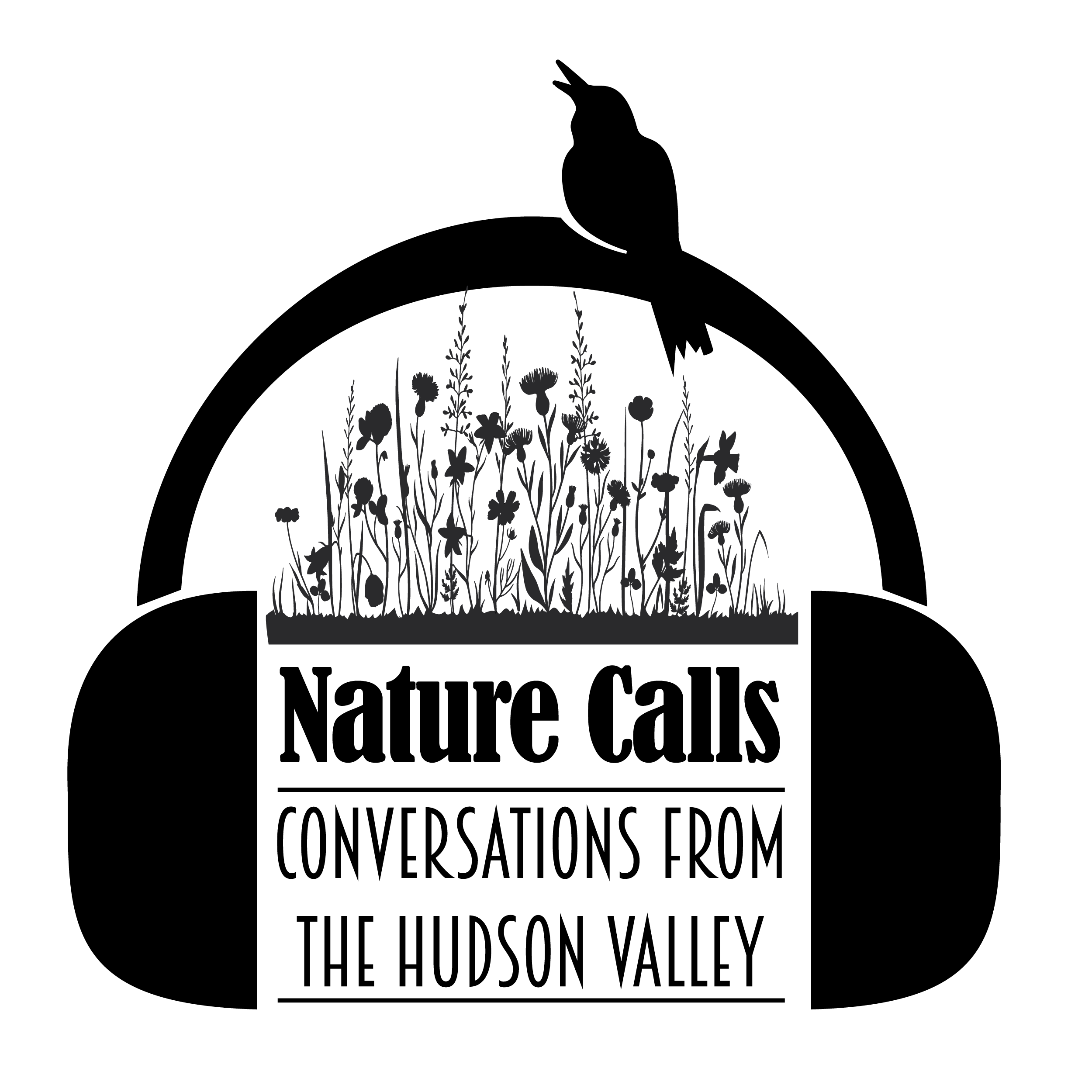Episodes
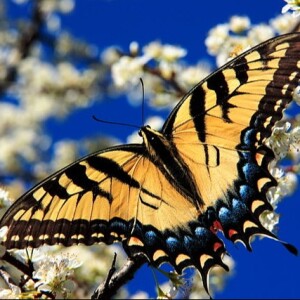
Thursday Oct 05, 2023
Episode 89: Gardening with Native Perennials
Thursday Oct 05, 2023
Thursday Oct 05, 2023
Prepare to embark on a captivating journey into the realm of native perennials in this engaging episode of "Nature Calls Conversations from the Hudson Valley." Co-host Tim Kennelty, our resident expert, is your guide as we explore these remarkable, sustainable garden wonders. Whether you're a gardening novice or a seasoned pro, this episode promises valuable insights into the world of native perennials, their resilience, and their magnetic allure to pollinators.
Our exploration spans the seasons, from the early whispers of spring to the full bloom of summer and beyond. Tim generously shares his wealth of knowledge, highlighting how these hardy plants are not only easy to cultivate but also require less water and fertilizer. The ecological significance of native perennials in supporting vital pollinators like butterflies and bees becomes abundantly clear.
Join us for an enlightening discussion on how to cultivate native perennials in your own green space. Tim's passion and expertise shines through as he provides guidance on choosing the right plants and understanding their unique characteristics. By tuning in, you'll gain the know-how to create a thriving garden that not only enhances your surroundings but also contributes positively to the local ecosystem.
Don't miss this opportunity to nurture your gardening skills and connect with the natural world. Hit that play button, and let's embark on this exciting journey together, discovering the magic of native perennials and their role in sustaining our environment.
Host: Jean Thomas
Guest: Tim Kennelty
Production Support: Linda Aydlett, Teresa Golden, Annie Scibienski
Resources
Photo by Jay Williams
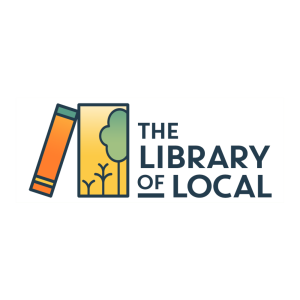
Thursday Sep 28, 2023
Episode 88: Library of Local
Thursday Sep 28, 2023
Thursday Sep 28, 2023
In this episode of "Nature Calls Conversations from the Hudson Valley", Annie and Jean sit down with Rebekkah Smith Aldrich, the Executive Director of the Mid-Hudson Library System (MHLS), to embark on an inspiring journey through the Library of Local, a remarkable initiative born from a partnership between Partners for Climate Action Hudson Valley and the Mid-Hudson Library System. This innovative project is changing the way local communities interact with climate change and ecological repair by providing library patrons with a diverse collection of resources. From books and films to seeds and shovels, the Library of Local (LOL) equips individuals with the tools they need to take meaningful action in addressing the climate crisis and fostering a harmonious relationship with nature.
At the heart of the LOL project are the 15 hand-built architectural displays created by local artist Johnny Poux. Each of these installations houses nearly 200 locally sourced books, forming a vital knowledge repository for those eager to learn about sustainable living and environmental stewardship. The seed library, essential gardening tools, and AV equipment make it even more accessible for community members to embark on their ecological journeys.
What sets the Library of Local apart is its commitment to community education and engagement. The LOL team organizes a dynamic monthly schedule of in-person and virtual events, along with community meetings. These gatherings provide a platform for individuals to learn from experts, exchange ideas, and collectively work towards a greener, more sustainable future.
Don't miss out! Join us on this eco-adventure and discover how libraries are becoming hubs for sustainability and environmental action. Whether you're a seasoned environmentalist or just starting on your journey, the Library of Local has something to offer everyone!
Hosts: Annie Scibienski and Jean Thomas
Guest: Rebekkah Smith Aldrich
Photo: Used with permission from Laura Crisci, MHLS Library Sustainability Coordinator
Production Support: Linda Aydett, Teresa Golden, Annie Scibienski
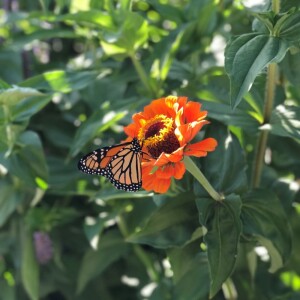
Thursday Sep 21, 2023
Episode 87: Annuals 101
Thursday Sep 21, 2023
Thursday Sep 21, 2023
Annuals, a term dating back to the 14th century, are plants that complete their life cycle in one growing season or single year. That means, they germinate, flower, set seed and die in one season. Annuals are loved because they bloom throughout the spring and summer. Typically, smaller than perennials, they don’t have time to focus on gaining height but rather expend their energy on flowering since they only last a single season. They come in a wide variety of beautiful colors and shapes. After the first frost, they’ll die off and typically won’t regrow the following year, although you might find that some of their seeds may germinate.
Master Gardener Volunteer, Maureen Mooney, joins the podcast, Nature Calls: Conversations from the Hudson Valley, in an informative discussion about popular annual flowers that grow in New York State. As part of the 101 series, this episode is geared towards new gardeners as well as those who have lots of experience under their belts.
Hosts: Jean Thomas and Annie Scibienski
Production Support: Linda Aydlett, Teresa Golden, and Annie Scibienski
Resources
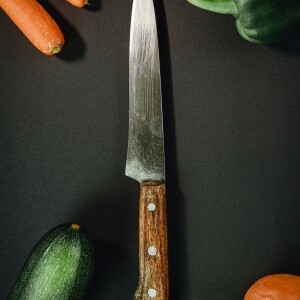
Friday Sep 15, 2023
Episode 86: Long Table Harvest
Friday Sep 15, 2023
Friday Sep 15, 2023
While you may have heard about ‘gleaning’, do you actually know what it is? In a gardening and nature context, gleaning is about the gathering of leftover grain or other product after a harvest.
Long Table Harvest, which serves Columbia, Dutchess and Greene Counties, is a non-profit organization that enables sustainable food surplus redistribution by connecting local farm surpluses with emergency food sites and community based organizations.
Unfortunately, the current state of food insecurity is such that food pantries and other sites continue to report record high usage, upwards of 50% increases since 2020, which has been attributed both to the pandemic and the current imbalance in the cost of living relative to wages. When Long Table Harvest was established in 2016, they stepped into an emergency food system that was lacking in quality fresh food options. Since then, they have provided a unique food distribution service to a variety of sites -- providing fresh produce, meat and dairy from predominantly organic growers to improve options and accessibility.
Their gleaning program, launched in 2016, is based on strong partnerships with area farms which provide reliable weekly distributions of fresh fruits, vegetables and proteins to food pantries, youth programs, senior living centers, subsidized housing, and community organizations. They work with over 64 farms from June through November, to pick-up already harvested produce, and then distributing tens of thousands of pounds of food to over 30 recipient sites on the same day to maintain peak freshness. Gleaning in the winter months is more sporadic, with the occasional distribution of storage vegetables. A seedling program helps residents grow their own food and a meat and cheese program rounds out the types of food that is distributed.
Learn from co-founder, Aravah Berman-Mirkin, and gleaning coordinator, Sarah Grinberg about their work and its impact on local food pantries and the community.
Hosts: Tim Kennelty and Annie Scibienski
Guests: Aravah Berman-Mirkin and Sarah Grinberg
Photo by: Tim Kennelty
Production Support: Linda Aydlett, Teresa Golden and Annie Scibienski
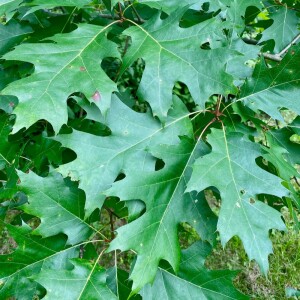
Thursday Sep 07, 2023
Episode 85: Oaks and Melons
Thursday Sep 07, 2023
Thursday Sep 07, 2023
Oaks (trees or shrubs in the genus Quercus of the beech family Fagaceae) are a favorite tree in New York. The mighty oak has earned this reputation due to its towering size, its historical, timber and ecological value, as well as its role in American (and human) culture. A symbol of strength and endurance, the oak is a key hardwood forest tree that can live for several hundred years. It is also a critical host tree for many types of pollinators. Its acorns and leaves contain tannic acid which helps to guard against fungi and insects. But did you know that it can take up to 17 years before an oak tree bears its first crop of acorns?
While the Quercus family is native to the Northern Hemisphere, there are about 500 existing species of oaks but only 16 are native to New York State. Locally, they can be typically categorized into white oaks (quercus alba), whose acorns form in a single season, and black oaks (which include red oaks), which take two seasons to form their acorns. Other parts of the country and the world host other varieties including the evergreen live oak which can be found in the southern United States.
Because of their longevity (outliving humans), oaks are known as witness trees. Learn from the Nature Calls: Conversations of the Hudson Valley podcast team as they share stories about oak trees and provide examples of what some of these trees have witnessed throughout history.
But then, there’s more. Melons are the topic of discussion on the Patch to Plate segment with Annie Scibienski. This category includes watermelons, honeydews, and cantaloupes. A great resource, Vegetable Varieties of New York State, published by Cornell University, provides a list of vegetables and fruits (including melons) that are rated highly to grow well in New York State. Get your taste buds watering with descriptions of recipes for watermelon salad, watermelon pickles, and grilled cantaloupe.
There’s a lot to take in on this episode of Nature Calls: Conversations from the Hudson Valley. Enjoy!
Hosts:Tim Kennelty and Jean Thomas
Guests: Linda Aydlett, Teresa Golden, Tim Kennelty, Annie Scibienski, and Jean Thomas
Photo by: Tim Kennelty
Production Support: Linda Aydlett, Teresa Golden and Annie Scibienski
Resources
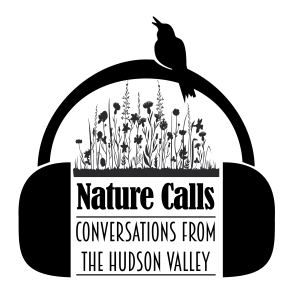
Thursday Aug 31, 2023
Episode 84: Making a New Garden Bed 101
Thursday Aug 31, 2023
Thursday Aug 31, 2023
Learn about the basics of Making a New Garden Bed with Master Gardener Tim Kennelty, based in Columbia County is an avid gardener, naturalist forest owner, and co-founder of the podcast, Nature Calls: Conversations from the Hudson Valley. Tim delivers numerous presentations on multiple gardening topics and is known for his love of native plants.
Tim suggests that you start with assessing what you want to plant (vegetables, annuals or perennials) and the amount of time, energy, and money you’re willing to invest with a new garden bed.
Checking out your neighbors’ gardens, or visiting public gardens, at different times of the year, can give you lots of ideas as to what you want to plant and the look you’re trying to achieve. If you are starting with a perennial garden, just realize that it may take up to 3 years for it to look ‘mature’. Remember the adage that in the first season the plants ‘sleep’, the second they start to ‘creep’ and the third year they ‘leap’. The garden will look good during this time period but make not look like a garden that has been established for several years.
Keeping it simple is the best bet for a new gardener to avoid becoming overwhelmed. The key is to ensure that you pick a spot that has the appropriate sunlight, soil, and access to water to ensure success. Start small until you better understand the basics of the plants you want to use and the growing conditions on your property.
Tim suggests that you test the soil to understand what kind of plants would thrive best in your soil. He also discusses different ways to prepare the soil, with methods that require a varying degree of time, energy and materials. Once the bed is prepared, Tim also talks about the merits of buying plants, or growing them from seed, as well as the need to think about the protecting your garden from any pets and/or wild critters that visit your yard.
Planting either host or nectar plants for pollinators is clearly an option, as is planting ones that are deer or woodchuck resistant (unless you are willing to invest in a fence). Design elements like color, size and texture are also important considerations when selecting plants.
Plant calculators might be helpful to figure out how many plants to buy to fill the area you’ve prepared. Tim offers tips on watching the weather to determine when to plant your garden bed. Wait until the soil warms up (trees/shrubs in late April, perennials in early May, and annuals in late May) before putting new plants into the ground. And, importantly, don’t forget about maintenance of the garden beds which includes watering, weeding, and potentially mulching staking, and deadheading spent flowers.
The off season is a great time to assess what worked, get new ideas, and plan for the following season. Until then, learn all about the basics of starting a new garden bed on this episode of Nature Calls: Conversations from the Hudson Valley.
Host: Jean Thomas
Guest: Tim Kennelty
Photo by: Tim Kennelty
Production Support: Linda Aydlett, Teresa Golden and Annie Scibienski
Resources
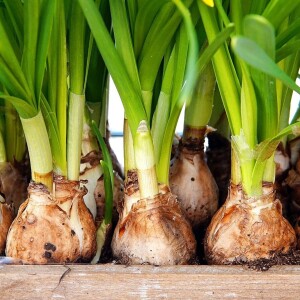
Friday Aug 25, 2023
Episode 83: Gardening with Bulbs 101
Friday Aug 25, 2023
Friday Aug 25, 2023
Everyone loves flowering bulbs (e.g., tulips, daffodils, gladiolas, etc.) but many may not know how to go about ordering and planting them. Timing is critical for spring flowering bulbs that need to have a cold period before they bloom. Thus, they need to be planted in the fall. Summer flowering bulbs (including tubers and rhizomes), that are typically not cold hardy, are planted in the spring. They need to be lifted and stored indoors as they won’t survive our New York winters. Some (like cannas and begonias) may benefit from being started indoors in the spring.
Planning is important for both types in order to determine how many bulbs to plant. Bulbs selection or fencing is key if you have a lot of wildlife. They should be planted at a depth that is triple their height. And don’t plant them in a row if you want them to look ‘natural’. Deadheading their stems (not their leaves) is key after flowering so that the bulbs focus on storing energy to rebloom the following year. Careful planning by placing them with other plants can help to screen the bulbs once they finish flowering.
Join Master Gardener Jean Thomas on this Nature Calls 101 podcast episode to gain confidence to successfully include bulbs in your garden landscape.
Host: Tim Kennelty
Guest: Jean Thomas
Production Support: Linda Aydlett, Teresa Golden, Annie Scibienski
Resources
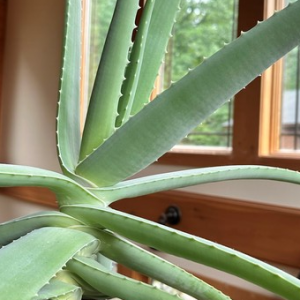
Thursday Aug 17, 2023
Episode 82: Medicinal Plants
Thursday Aug 17, 2023
Thursday Aug 17, 2023
Did you know that Jewel Weed is a wonderful first aid plant to treat skin irritations (including poison ivy) or that Aloe Vera can be applied to minor burns? Yarrow is a meadow plant that the native peoples used to treat arthritis and to staunch bleeding, among other things. Bee Balm (Monarda fistulosa) can be used to reduce swelling and can be applied to bee stings. Plantain is a favorite plant, even though it is not native, as it can used to extract the stinger from a bee sting. Elderberries can be used to strengthen the immune system, but they have to be cooked.
This week, Barbara Huey joins the podcast, Nature Calls:Conversations from the Hudson Valley. Barbara is from Land Stewardship Design and her topic is native Medicinal Plants.Her parents influenced her love of nature and her time at Sage Mountain cultivated her interest in medicinal plants. She focuses mostly on plants that can be applied externally, typically for first aid, but cautions that they don’t replace the need to see health care workers.
It is important to note that while medicinal plants aren’t cure-alls and they aren’t perfect, many herbs and teas offer harmless subtle ways to improve your health. However, many carry the same risks and side effects as manufactured medicines. Many of them are sold with unfounded promises. Pay attention to what the evidence says about each herb’s effectiveness as well as potential interactions or safety issues. Avoid using herbs for infants and children and for those who are pregnant and breastfeeding. Note that most herbs haven’t been tested for safety for those who are vulnerable, and trying herbs isn’t worth the risk.
The USDA Plant ID database is the ‘go to’ resource Barbara Huey uses to identify native plants in New York and the northeast. Medicinal properties are considered secondary properties of these plants that can be bred out with newer cultivars, so the native species are always preferred. But bear in mind that more is not necessarily better when using plants for first aid.
Medicinal plants provide considerable value to pollinators within the landscape. Learning about these plants can also help to increase awareness of the importance of native plants.
Listen in to learn how these plants can be used and what to watch out for when considering their use for medicinal purposes.
Hosts: Tim Kennelty and Jean Thomas
Guest: Barbara Huey
Photo By: Teresa Golden
Production Support: Linda Aydlett, Teresa Golden and Annie Scibienski
Resources
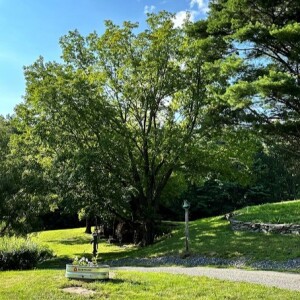
Thursday Aug 10, 2023
Episode 81: Tree Selection, Planting and Maintenance
Thursday Aug 10, 2023
Thursday Aug 10, 2023
Are you interested in ensuring the beauty and safety of your landscape, and improving your property, while promoting the wellbeing of the environment? Planting trees might be a great place to start. But where should you begin?
Careful tree selection, planting and maintenance is the answer. Caleb White from New Leaf Tree Services joins the Nature Calls: Conversations from the Hudson Valley podcast with an informative discussion on when to engage a tree service and what to expect.
Ideally, a new property owner can request a visit to better understand what is currently on the landscape, learn about the health of the existing trees, and understand what could be done to achieve a homeowner’s goals. Unfortunately, a storm event might result in uprooted trees or fallen tree limbs that require more immediate attention from a tree service to help with tree removal and/or pruning. Both situations are quite common in the Hudson Valley.
Tree services often have a certified arborist on staff who is specially trained to deal with the art and science of planting, caring, maintaining, and diagnosing trees, shrubberies, and other woody plant life. These professionals have spent time and effort mastering their craft to properly and effectively manage the growth and development of trees.
Caleb, who is an arborist, talks about what to look for in selecting new trees for your landscape, especially in light of climate change. He has a clear preference for native species that better suit New York’s ecology and support the insects, birds, and other wildlife. Ornamental options are okay when planted for specific reasons. Did you know that evergreens don’t like to be planted closely together? Something to consider when looking for screening on your property. Learn about the benefits of some of Caleb’s favorite trees including Red Maples, Oaks, American Linden and Eastern Redbud.
Once the tree has been selected and sourced from a reputable nursery, having it properly planted is key to surviving its first year. Consider using biochar and having the soil inoculated at planting time to provide trees with the nutrients that will enable them to thrive. Proper watering is absolutely fundamental. Have you heard about a tree diaper?
Existing trees also need maintenance. A tree service can evaluate the trunk structure, branch structure, cavities, bird activity, etc. to assess the health of the tree and evaluate any existing or potential risks to the home or landscape. Using a service with the proper equipment can help ensure that and canopy pruning, ornamental pruning or tree removal is done safely while also being gentle with the landscape.
Listen to this episode of Nature Calls: Conversations from the Hudson Valley to become better informed should you want/need to consider using a tree service in the future.
Hosts: Tim Kennelty and Jean Thomas
Guest:Caleb White (New Leaf Tree Services)
Photo By: Teresa Golden
Production Support: Linda Aydlett, Teresa Golden and Annie Scibienski
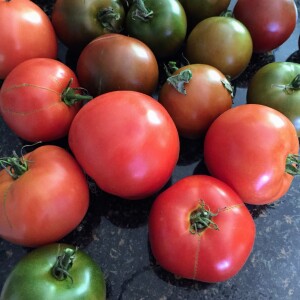
Thursday Aug 03, 2023
Episode 80: Tomatoes
Thursday Aug 03, 2023
Thursday Aug 03, 2023
Tomatoes are often the reward for growing a summer garden. Native to South America, Mexico and Central America, the first evidence of its use for domestic cooking is from the Aztecs and other peoples in Mesoamerica.
Tomatoes can be consumed either raw or cooked, and in many dishes, sauces, salads and drinks. While tomatoes are actually fruits (botanically classified as berries), they are commonly used as a vegetable ingredient.
Miriam Rubin, joins Nature Calls: Conversations from the Hudson Valley to talk about this popular garden staple. Miriam is a food writer, columnist, recipe developer, chef, and cookbook author. In her book Tomatoes, she explores the tomato’s rich history in southern culture.
Listen in to learn about why tomatoes grow better in the South, or what makes a tomato an heirloom. In addition to describing the history of hybrid tomatoes including why they were developed; she also dishes about the best tomatoes to grow in the Hudson Valley. This is a podcast episode not to be missed!
Hosts: Tim Kennelty and Jean Thomas
Guest: Miriam Rubin
Photo by: Tim Kennelty
Production Support: Linda Aydlett, Teresa Golden, Annie Scibienski

